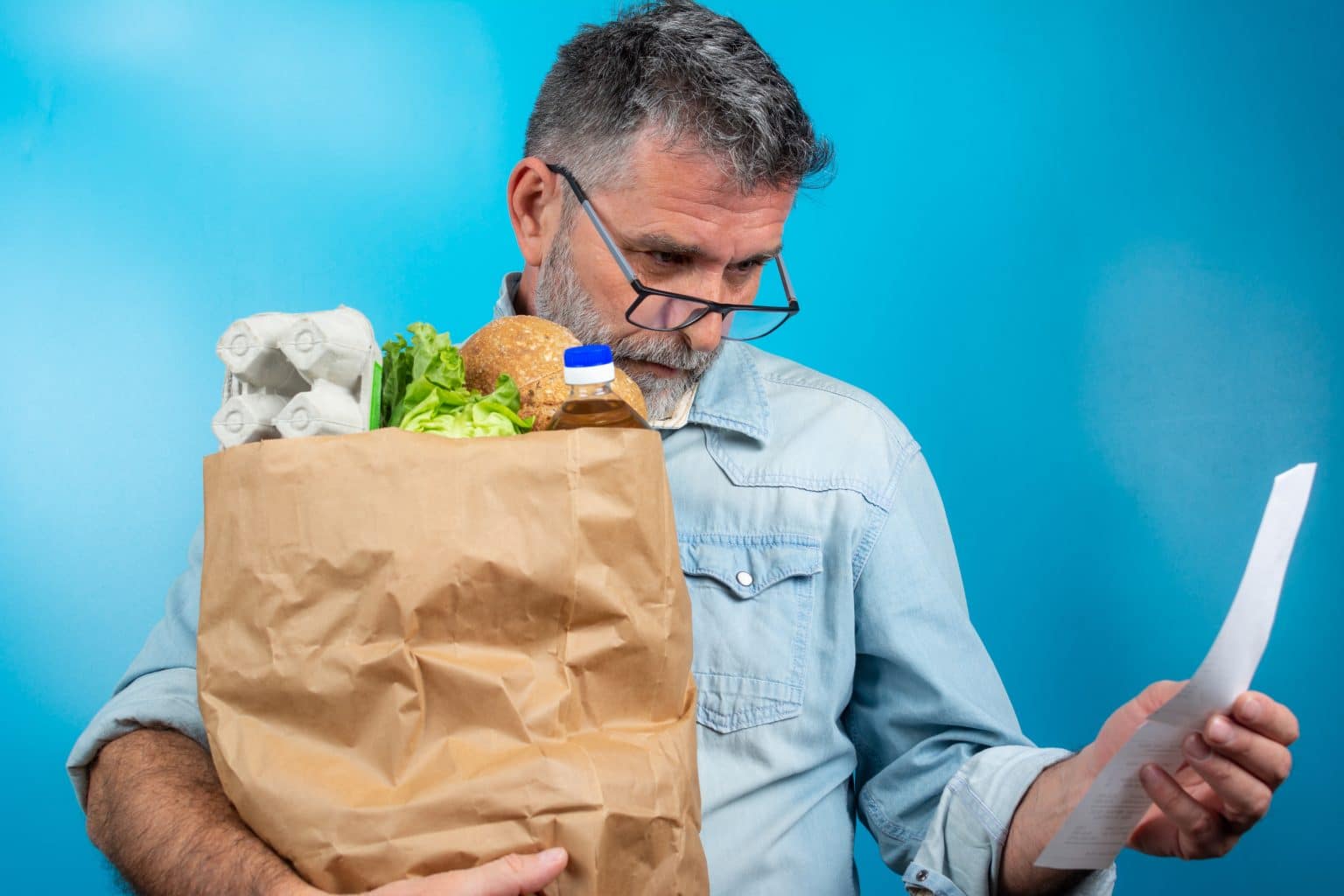A recent study by savings experts at BravoVoucher has forecasted a sharp increase in the prices of essential food items by 2030, with inflation showing no signs of easing. By analysing data from the Office for National Statistics on average food prices from 2019 to 2024, BravoVoucher has projected the costs of common groceries under two scenarios: continuing high inflation and a more optimistic scenario where inflation rates fall to the UK’s annual target of 2%.
- If inflation rates don’t improve, olive oil could cost as much as £17.19 by 2030
- A tin of beans could cost £1.77 by 2030 if inflation rates remain the same
- Two sets of predictions were made, based on inflation rates from the past five years, as well as the UK’s yearly inflation targets of 2%
The food items that have had the biggest price increases from 2019-24 and their predicted prices for 2030
| Food item | % increase in price from 2019-2024 | Average price in 2024 | Price by 2030 if inflation rates decrease to 2% | Price by 2030 if inflation rates remain the same |
| Olive oil | 113.8% | £8.04 | £9.05 | £17.19 |
| Baked beans | 70.5% | £1.04 | £1.17 | £1.77 |
| Granulated white sugar | 67.7% | £1.19 | £1.34 | £1.99 |
| Still mineral water | 67.6% | £1.04 | £1.17 | £1.74 |
| Plain biscuits | 66.6% | £1.35 | £1.52 | £2.25 |
Among the most striking findings, the price of olive oil has risen dramatically by 113.8% from £3.76 in 2019 to £8.04 in 2024. If the current inflation trend persists, a bottle of olive oil could cost as much as £17.19 by 2030. Even if inflation is controlled and meets the 2% target, consumers could still expect to pay £9.05 per bottle.
Baked beans have also seen a significant price hike, increasing by 70.5% since 2019. In 2019, a tin of beans cost £0.61, but the price has risen to £1.04 in 2024. The study predicts that this could rise to £1.77 per tin if inflation remains high, or £1.17 if inflation is curbed to 2%.
The cost of granulated white sugar has also surged, increasing by 67.6% from £0.71 per kilogram in 2019 to £1.19 in 2024. By 2030, prices could range between £1.34, if inflation improves, and £1.99 if it doesn’t.
Still mineral water has seen similar increases, with a price rise of 67.7%. The average cost of a 1.5-2 litre bottle rose from £0.62 in 2019 to £1.04 in 2024. Predictions suggest that this could climb to £1.74 per bottle if inflation persists, or £1.17 if inflation targets are met.
Other everyday items are also set to become more expensive. Plain biscuits, for example, have increased by 66.6% over the past five years, from £0.81 in 2019 to £1.24 in 2024. By 2030, they could cost between £1.52 and £2.25, depending on inflation rates.
Semi-skimmed milk, which currently costs £1.24 for two pints, could rise to £1.83 if inflation remains high, or £1.40 if it stabilizes. Cheddar cheese, currently priced at £8.75 per kilogram, could see prices range between £9.85 and £11.10 by 2030.
Other notable items include fresh whole chicken, which could increase from £3.83 per kilogram in 2024 to between £4.31 and £5.31 by 2030, and gammon, which may rise from £8.96 per kilogram to between £10.19 and £12.20.
Even staple vegetables like broccoli could see price hikes, from £2.50 per kilogram in 2024 to between £2.82 and £3.32. Powdered baby formula, essential for many families, could increase from £11.93 per pack to between £13.44 and £14.97.
Marco Farnararo, CEO and Co-Founder of BravoVoucher, commented: “This research provides a scary look into the future of food prices if current inflation trends continue. The dramatic increase we’ve seen in prices for everyday essentials like olive oil and baked beans is particularly concerning. It highlights the urgent need for effective economic policies to stabilize inflation and protect consumers.”
Farnararo also offered advice for consumers to mitigate rising costs, suggesting shoppers take advantage of store offers and vouchers while avoiding unnecessary purchases and keeping track of existing supplies to prevent overbuying.
As these projections suggest, the need for robust economic measures to combat inflation has never been more critical. Consumers may need to brace themselves for potentially steep rises in food costs over the coming years, making strategic shopping habits more important than ever.
For more information visit https://www.bravovoucher.co.uk/

